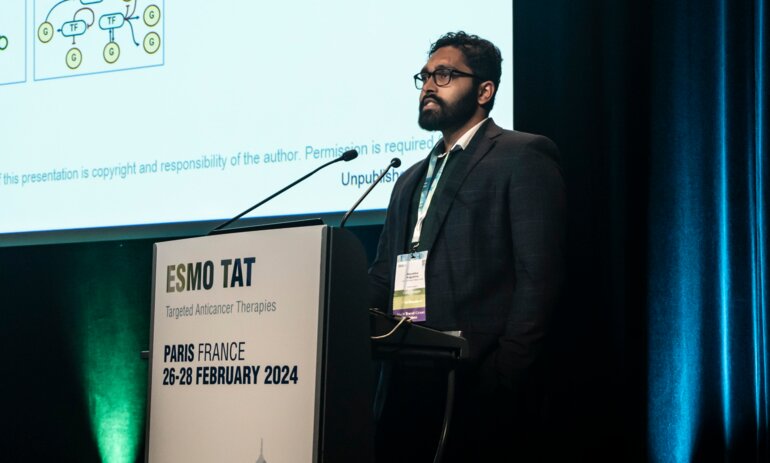
Europe cannot afford to wait any longer for cleaner air
Despite recent progress, lung cancer remains deadly and difficult to treat — and preventable, to a much greater extent with the right actions to improve the quality of the air we breathe

Despite recent progress, lung cancer remains deadly and difficult to treat — and preventable, to a much greater extent with the right actions to improve the quality of the air we breathe

ESMO is sustaining its efforts to give rare cancers a more prominent place in oncology

Innovative models and increased cross-border collaborations can further support the implementation of rare cancer reference centres to expedite diagnosis and improve treatment

A study proposes a model that is able to learn broad aspects of cancer–immune interactions from early phase trial data

The 2024 TAT Honorary Awardee Prof. Funda Meric-Bernstam discusses progress made and how to overcome current obstacles in the field

ESMO is advocating for secondary and tertiary care levels to be included into international agreements and WHO’s documents to respond to pandemics

In the period 2024-2026, the technical collaboration between the United Nations agency and the Society plans a series of evidence-based activities to improve global cancer care

A phase II trial opens up discussions on how to define success of chemoprevention studies

Well-designed real-world observational studies are hypothesis-generating and impact therapeutic decisions

Several ESMO initiatives highlight the need for closing the gap between fast cancer research and a lack of accessibility to treatments in the real world
This site uses cookies. Some of these cookies are essential, while others help us improve your experience by providing insights into how the site is being used.
For more detailed information on the cookies we use, please check our Privacy Policy.
Necessary cookies enable core functionality. The website cannot function properly without these cookies, and you can only disable them by changing your browser preferences.